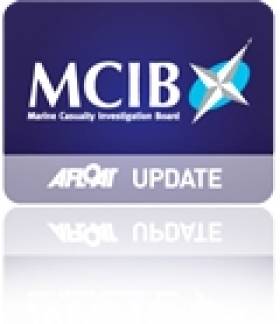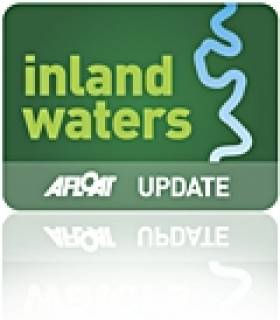Displaying items by tag: personal flotation device
Report into Death of Crab Fisherman Prompts Call for Review of Stability Standards
#MCIB - The Marine Casualty Investigation Board (MCIB) has recommended a ministerial review of stability standards for fishing vessels following its report into the death of a crab fisherman off Co Cork in January last year.
Gerry Hegarty drowned after a wave struck the crab boat Carraig An Iasc, which was fully loaded with crab pots at the time, causing it to capsize and sending its two-man crew into the water.
Hegarty, who was not wearing a personal flotation device (PFD) or other buoyancy aid, got into difficulty while attempting to swim ashore with his crewmate and skipper James Fitzgerald, who subsequently raised the alarm.
Lifeboats from Ballycotton and Crosshaven, as well as Irish Coast Guard helicopter Rescue 117, were tasked to the incident. Divers from Naval Service vessel LE Emer located the sunken crab boat but no body was found.
A coastguard search of the area continued over a number of days without success. Hegarty's body was eventually recovered on 17 February 2011 at Ringabella Strand in Co Cork.
The MCIB found it probable that the Carraig An Iasc encountered wind or wave action or a combination of both that caused the vessel to heel to an angle beyond which it was able to recover from its loaded condition. The vessel's Code of Practice Declaration of Compliance was valid until 15 July 2013.
The board noted that there have been "a number of incidents caused by overloading boats thus effecting stability", and recommended that the Minister for Transport reviews and revises the stability standards in the current Code of Practice to improve these standards.
It was also recommended that a safety notice be issued to all skippers and owners in the fishing fleet reminding them of their legal responsibility to ensure that all their crew wear PFDs or lifejackets while on deck.
The full report is available to download as a PDF from the MCIB website HERE.
- Crosshaven
- Cork
- Safety
- Fishing
- Ballycotton
- Lifejacket
- Lifeboat
- Marine Casualty Investigation Board
- Coastguard
- Irish Coast Guard
- Skipper
- naval service
- helicopter
- MCIB
- Rescue 117
- personal flotation device
- Minister for Transport
- LE Emer
- standards
- drowned
- crab fishing
- Carraig An Iasc
- Gerry Hegarty
- James Fitzgerald
- PFD
- Ringabella Strand
- Code of Practice
- stability
- overloading
Safety Precautions for Vessels and Crew
Owners and masters availing of winter mooring facilities for their vessels on any of Waterway Ireland's navigations are advised to choose a sheltered berth within the harbour, place adequate fendering between the vessel and the harbour wall and secure the vessel with double mooring lines.
The vessel should be monitored on a regular basis in the event that it should be taking or making water and particularly so after a period of stormy or frosty weather.
Owners visiting harbours during this period and who intend to work on their vessels should bear in mind the changed environmental conditions at this time of year and to take the appropriate measures necessary to reduce risks associated with working on or near water.
It is advised that personal protective clothing, to guard against the cold and the wet, including a personal flotation device, should be worn and all items checked for serviceability beforehand, bearing in mind:
• Low air temperatures
• Low water temperatures
• Reduced daylight
• Inclement weather
• Raised water levels
• Flood conditions including increased rates of flow
Working on or near water should preferably be undertaken in the company of a colleague. Lone working should be avoided if possible and especially at remote locations. Ensure that someone has been informed of your whereabouts and expected time of return.
Further, carry a mobile phone and/or a handheld Marine VHF, fully charged, for keeping in contact while being aware that full phone coverage is not available everywhere.































































